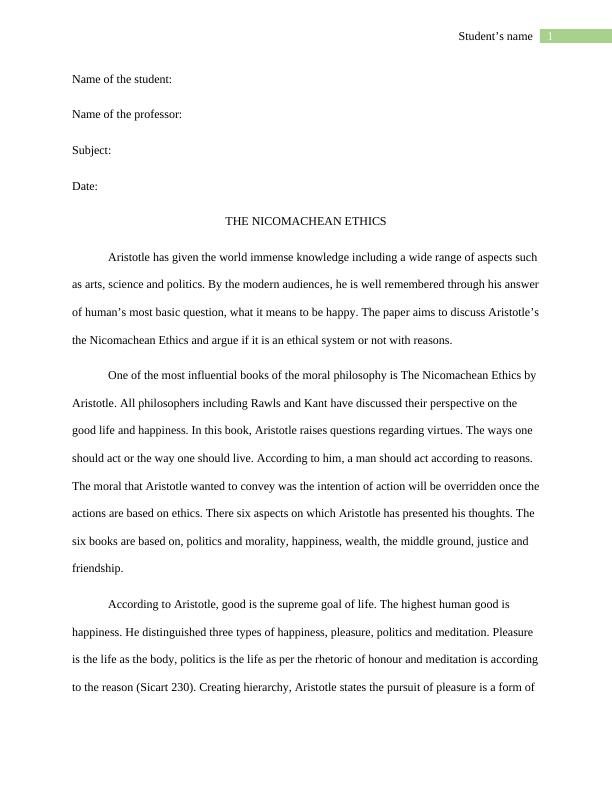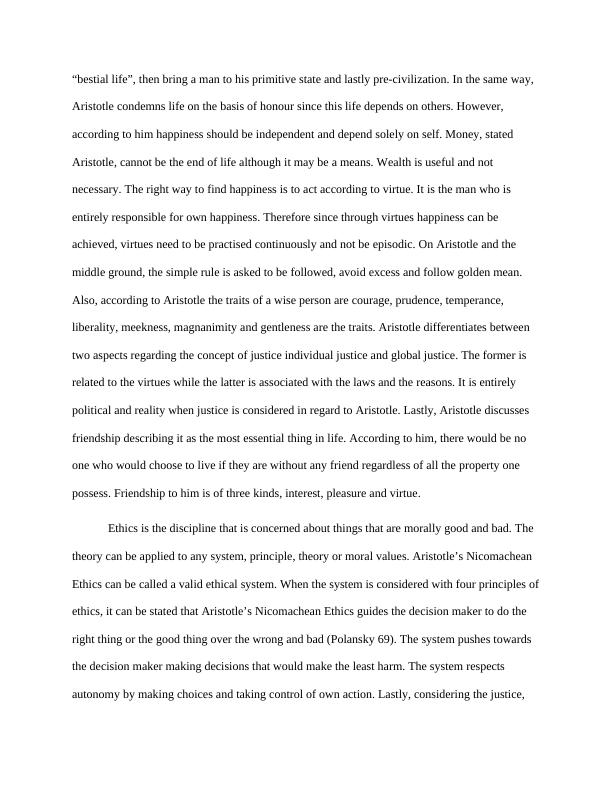Aristotle's Nicomachean Ethics: An Ethical System or Not?
4 Pages959 Words69 Views
Added on 2023-04-24
About This Document
The paper aims to discuss Aristotle’s the Nicomachean Ethics and argue if it is an ethical system or not with reasons. It also highlights the six aspects on which Aristotle has presented his thoughts. Ethics is the discipline that is concerned about things that are morally good and bad. The theory can be applied to any system, principle, theory or moral values. Aristotle’s Nicomachean Ethics can be called a valid ethical system.
Aristotle's Nicomachean Ethics: An Ethical System or Not?
Added on 2023-04-24
ShareRelated Documents
End of preview
Want to access all the pages? Upload your documents or become a member.
Comparison of Aristotle and Plato's Works: Nicomachean Ethics and The Allegory of the Cave
|5
|1310
|73
Aristotle's Philosophy of Happiness
|7
|2182
|89
Philosophical Research Paper Of Ethics and Justice.
|8
|1448
|10
Comparison of Plato and Aristotle's Works: The Allegory of the Cave and Nicomachean Ethics
|5
|1436
|313
Assignment on Sociology - Aristotle’s ethics
|5
|975
|15
Non-Legal Frameworks for Analyzing Business Ethics: Christian Ethics and Aristotle's Virtue Ethics
|4
|670
|293


